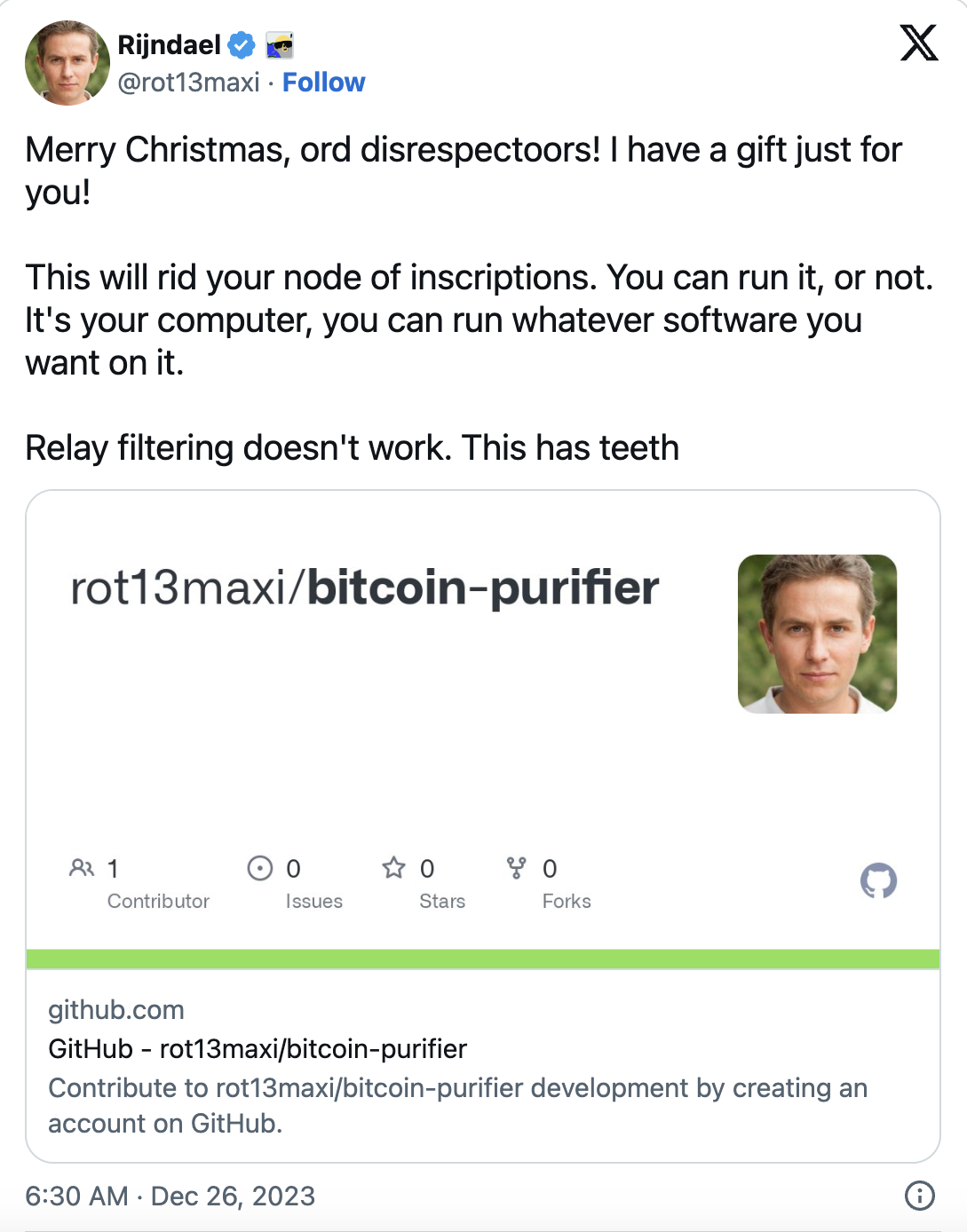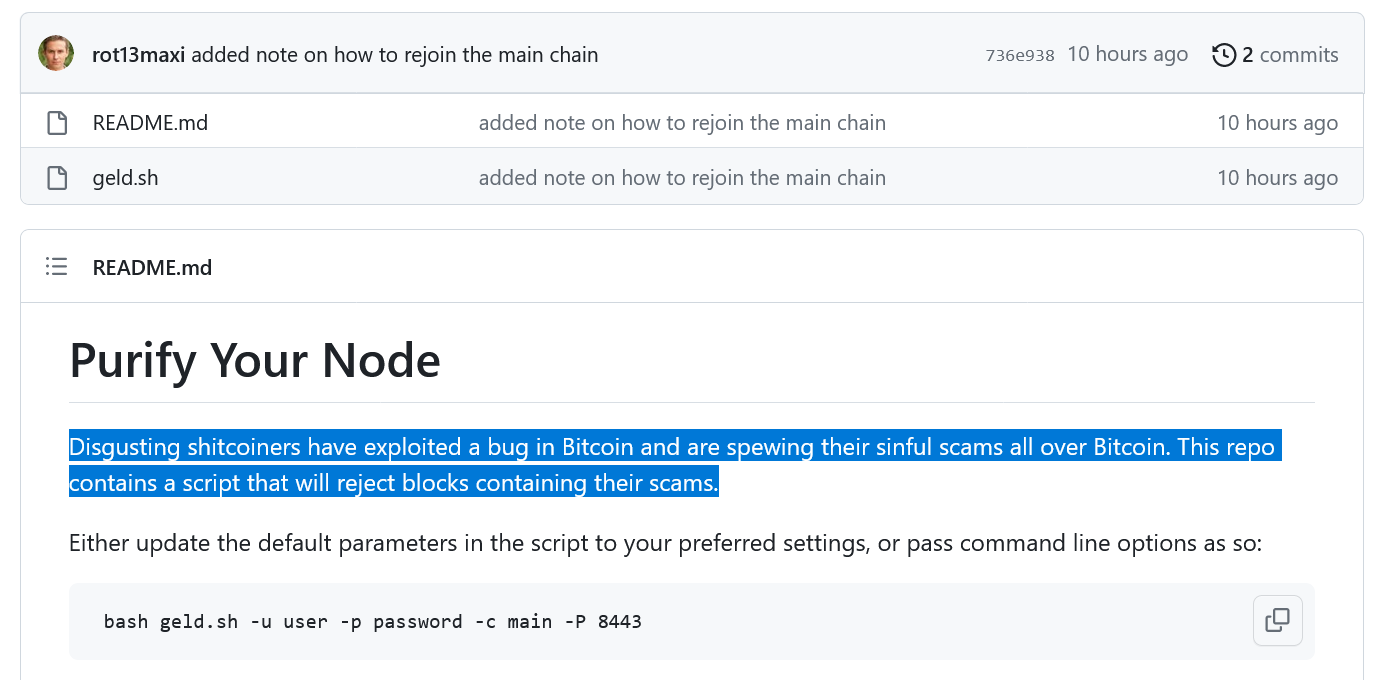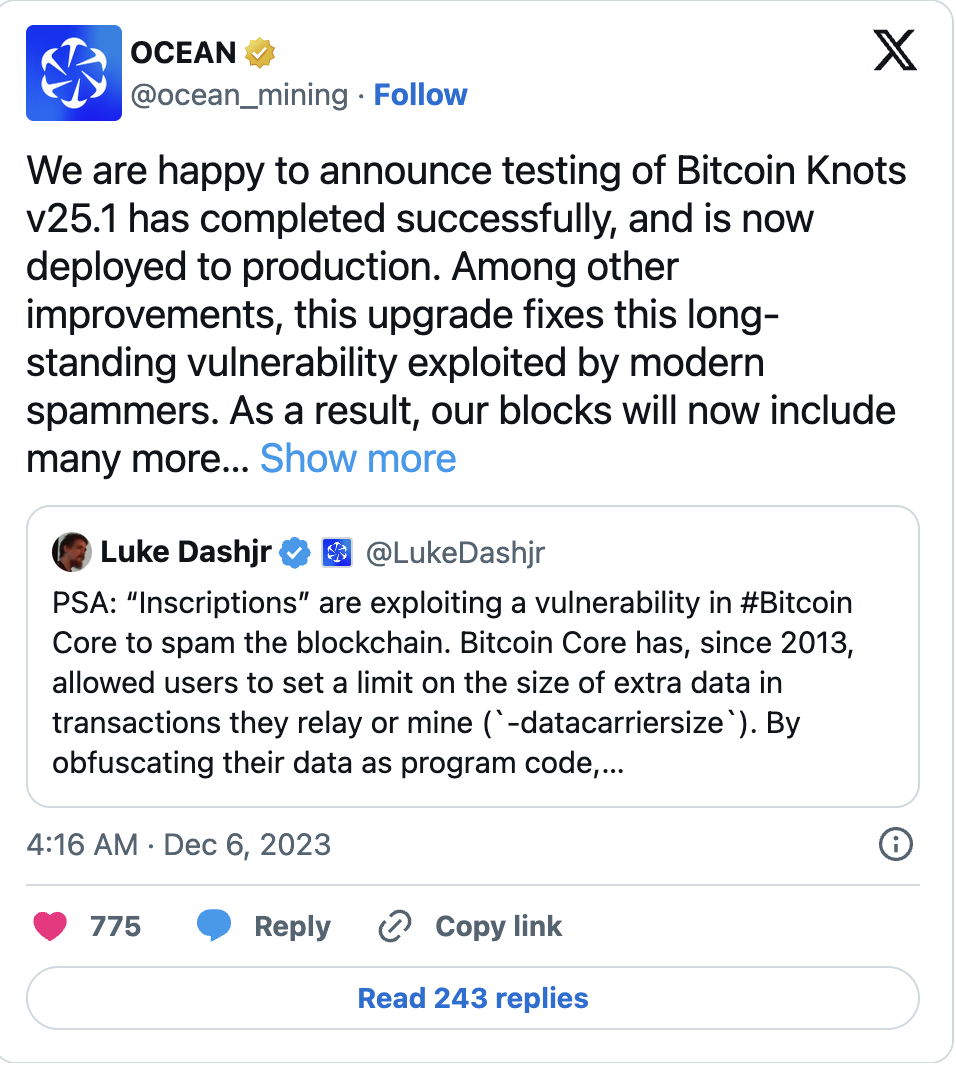In January, steps continue to be taken regarding Inscriptions, which entered our lives and allowed token and NFT projects to be hosted over a 15-year-old ecosystem. Accordingly, a person who contributed to the Taproot Wizards, an art collection taken up by Bitcoin Ordinals, announced that they found a way for Bitcoin users to reject Ordinals Inscriptions.
Significant Development Regarding Bitcoin Ordinals
Although this claim has attracted attention, it is not expected that many people will accept this proposal. Rijndael, the Chief Technology Officer of the Taproot Wizards team, stated in a December 26 post:
“Merry Christmas, ord disrespecters! I have a gift just for you! This script node will save you from Ordinals.”

Rijndael explained that the script node he discussed was designed to reject blocks containing Ordinals:
“If the economic majority of codes do this, miners will choose to build on a block without Ordinals or sell to a smaller market.”

Rijndael, who mocked Ordinals excessively on the GitHub repository page, further angered Ordinals critics. Glassnode’s chief analyst James Check said that despite some voices criticizing Ordinals, it is unlikely that the software will attract interest:
“This is entirely to show that those complaining about Ordinals are in the minority. The software is now available to invalidate these on their own nodes, but someone will automatically realize that this actually bricks your node because they are valid transactions.”
Rijndael said that creating the software took about 15 minutes and apparently admitted that the scenario could easily be circumvented by changing an Ordinals fingerprint.

Censorship Debate Over Ordinals
The censorship debate over Ordinals resurfaced last month when the Bitcoin mining firm OCEAN, led by Bitcoin Core developer Luke Dashjr, began rejecting Ordinals transactions citing denial of service attacks and increased mempool congestion risks.

Many people believe there are potential benefits or drawbacks depending on the situation. According to an anonymous Bitcoin Core developer, mempool congestion caused by Ordinals could benefit Lightning transactions and users if it is stable and predictable:
“Lightning users benefit from stable mempool congestion cycles that allow them to allocate more liquidity off-chain.”
On the other hand, if Ordinals transaction volumes are unpredictable, it could cause problems for Lightning users in the future. A solution to reduce Ordinals volumes may be implemented, citing the planned update to version 27 of Bitcoin Core in 2024.

 Türkçe
Türkçe Español
Español










